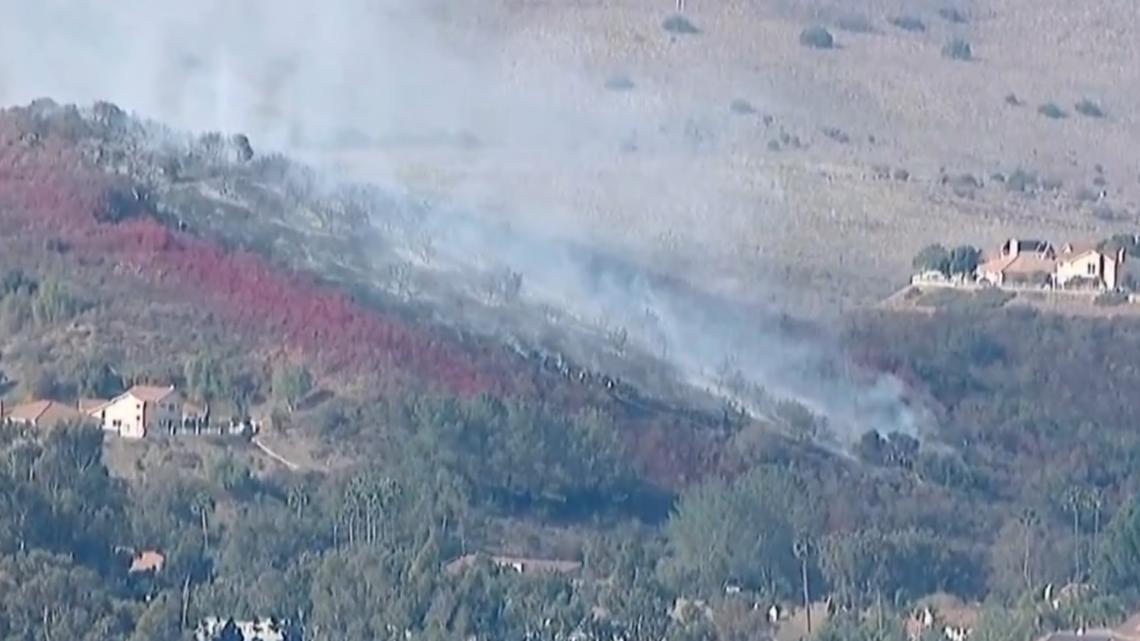Israel targeted Hezbollah leader Hassan Nasrallah in a strike Friday on Beirut, according to a senior U.S. official.
At least two people were killed and 76 others were injured in the strike, according to the Lebanese Health Ministry.
Nasrallah and some of his lieutenants were in Beirut making a quick visit when the strike took place, according to the official. Israel let the U.S. know less than an hour before this strike that it was going to target Nasrallah, the official said.
Rescuers stand on the rubble of a building destroyed in an Israeli air strike in the Haret Hreik neighborhood of Beirut’s southern suburbs on Sept. 27, 2024.
AFP via Getty Images
Israel used bunker busters — a munition designed to penetrate targets underground — in the strike, according to an Israel official familiar with the strike.
It’s unclear whether the strike was successful.
Israel said it is still checking the results of its attack on Hezbollah headquarters in Beirut.
Hours after the strike, the Israel Defense Forces told residents of the southern suburbs of Beirut to evacuate the buildings immediately and move at least 500 meters away, adding it will attack “strategic capabilities that Hezbollah has buried underground in Beirut,” according to IDF spokesperson Daniel Hagari. Residents in Al-Laylaki neighborhood, Al-Hadath neighborhood and Al-Hadath district have been told to evacuate.
“In the last hour, we have contacted the residents of the three buildings in the Dahieh — these residents are above and near Hezbollah’s strategic assets and must evacuate immediately for their safety and security,” Hagari said.
Hagari also said the Israeli air force would be patrolling the airport in Beirut.
“Until now, the state of Lebanon, unlike Syria, has behaved responsibly over the years, and has not allowed the transfer of weapons through the civilian airport,” Hagari said. “We announce in advance: we will not allow hostile flights with weapons to land at the civil airport in Beirut.”
After speaking at the United Nations on Friday, Prime Minister Benjamin Netanyahu will fly back to Israel on Friday night, sooner than originally planned, according to his office.
“Don’t let Nasrallah drag Lebanon into the abyss,” Netanyahu said during his address to the U.N. an hour before the strike. “We’re not at war with you. We’re at war with Hezbollah, which has hijacked your country and threatens to destroy ours. As long as Hezbollah chooses the path of war, Israel has no choice. … Israel must defeat Hezbollah.”
President Joe Biden said he had “no knowledge” of or “participation in” the attack on Beirut.
“We’re gathering more information and I’ll have more to say when I have more information,” Biden told reporters on the tarmac Friday.

People and rescuers gather near the smoldering rubble of a building destroyed in an Israeli air strike in the Haret Hreik neighborhood of Beirut’s southern suburbs, Sept. 27, 2024.
Ibrahim Amro/AFP via Getty Images
The U.S. had no involvement or advanced warning of the Israeli strike, deputy Pentagon press secretary Sabrina Singh told reporters Friday. Defense Secretary Lloyd Austin spoke with his Israeli counterpart as the operation was “already underway,” Singh said.
“This operation happened within the last few hours. We are still assessing the event, and don’t have any additional information or any further specifics to provide at this time,” Singh said.
After the attack, the Iranian Foreign Ministry released a statement calling the U.S. “an accomplice” in Israel’s attack and both should be held accountable.
The Iranian Foreign Ministry said the attack is a “flagrant violation of the rules and regulations of international law as well as the sovereignty and territorial integrity and national security of Lebanon [and] is considered a war crime.”
Residents in the Israeli-occupied Golan Heights and Galilee were told to reduce outside movements, avoid gatherings and stay near protected areas.
The U.K. government said citizens “in Lebanon should leave now. You should take the next available flight,” in a post on X.

Ambulance carries injured following an Israel strike in Danieh, Beirut, Lebanon, Sept. 27, 2024.
Wael Hamzeh/EPA-EFE/Shutterstock
A huge plume of smoke could be seen over a residential area of Beirut on Friday as Israel claimed it struck Hezbollah’s central headquarters in the city.
“Moments ago, the Israel Defense Forces carried out a precise strike on the central headquarter of the Hezbollah terror organization that served as an epicenter of Hezbollah’s terror,” the IDF said in a statement, before accusing Hezbollah of intentionally building the headquarters amid civilian infrastructure.
“Hezbollah’s central headquarter was intentionally built under residential buildings in the heart of the Dahia in Beirut as part of Hezbollah strategy of using Lebanese people as human shields,” the IDF said.

Lebanese army soldiers gather over the rubble of a levelled buildings as people flight the flames, following Israeli air strikes in the Haret Hreik neighborhood of Beirut’s southern suburbs, Sept. 27, 2024.
Ibrahim Amro/AFP via Getty Images
Exchanges continued between Israel and Lebanon on Thursday. More than 700 people have been killed in Israeli strikes on Lebanon since Monday, according to Lebanese officials.
More than 118,000 people have been displaced in Lebanon since Monday, according to the United Nations.
“The relentless airstrikes have pushed tens of thousands from the South, southern suburbs of Beirut and the Bekaa to safer locations in Beirut, Mount Lebanon, and the North,” the United Nations said in a statement Friday. “Movements peaked on both Monday and Tuesday, creating congestion and chaos. They have continued more gradually as many people are still looking for homes and shelter.”

Smoke rises above Beirut’s southern suburbs during an Israeli strike on Sept. 27, 2024.
Emilie Madi/Reuters
In the last 72 hours, well over 30,000 people are estimated to have crossed into Syria from Lebanon, fleeing the violence.
A missile was fired into a Beirut neighborhood on Thursday, according to video released by the Israeli military. The strike, which hit a southern Beirut suburb, killed the head of one of Hezbollah’s air force units, Mohammad Surur, according to the military.
Separately, at least 19 people were injured after a missile from Yemen’s Iran-backed Houthi rebels was intercepted over central Israel late Thursday, according to Israeli authorities.
Speaking at the United Nations on Friday, Netanyahu sought to rally international support as Israeli officials say they are planning for a potential ground invasion into Lebanon.
French President Emmanuel Macron called the number of civilian victims of Israeli strikes in recent days “absolutely shocking” and called on both Israel and Hezbollah to stop attacks across the border.
France is “opposed to Lebanon becoming Gaza again,” Macron said.

Smoke rises above Beirut’s southern suburbs during an Israeli strike on Sept. 27, 2024.
AFP via Getty Images

A man checks the destruction following an overnight Israeli airstrike in the southern Lebanese village of Shebaa near along the border between the two countries, Sept. 27, 2024.
Rabih Daher/AFP via Getty Images
Reacting to Netanyahu’s comments Thursday, in which the Israeli prime minister signaled he was unwilling to agree to a cease-fire, Macron said he thought those remarks were not definitive.
“We will continue our contact and close coordination with our American partners, all our mobilized partners, including Canada, and by communicating with the Israelis ourselves, we will do everything to ensure that this proposal is accepted,” Macron said.
Speaking Thursday at the United Nations General Assembly in New York, Lebanese Foreign Minister Abdallah Bou Habib renewed calls for a cease-fire in Lebanon amid concerns Israel is preparing for a ground invasion.




















